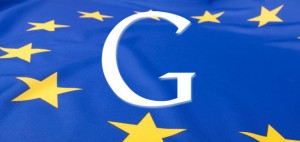Would Europe “Ban” Google Universal Search Results?
As Google’s critics and rivals in Europe become increasingly vocal and aggressive in their campaign against the company’s proposed antitrust settlement, the European Commission (EC) has some egg on its face. EU Competition Commissioner Joaquin Almunia negotiated the current settlement with Google over a period of months. The specific provisions, including the controversial “rival links” […]

EU Competition Commissioner Joaquin Almunia negotiated the current settlement with Google over a period of months. The specific provisions, including the controversial “rival links” concept, were entirely known to him and colleagues when the proposal was released for “market testing” third-party reaction and comment.
It was also entirely predictable that FairSearch.org and other anti-Google groups would reject the proposals as insufficient. I have been informed and led to believe that Almunia and the EC have the authority to simply accept and finalize the settlement over the objections of critics.
However, that doesn’t seem to be happening, and Almunia now finds himself in a “political bind.”
It’s strange that Almunia is acting surprised by the market’s reaction. Quoted in a Bloomberg article Almunia also appears to be distancing himself from the settlement proposal and seeking to mollify critics with suggestions that if there aren’t more Google concessions the EC could ultimately “ban” some of Google’s practices:
“Google has to decide whether it improves the planned solutions it presented,” Almunia said. “Depending on Google’s response and the market test I have to decide whether we reach an accord,” he said.
“Working with the hypothesis that it’s possible to reach a deal, it will probably be reached by the end of this year.”
Without an agreement, the process toward a possible ban on some of Google’s actions “will probably extend until next year,” said Almunia.
The central issue is Google’s ability to place “its own content” where it wants on the search results page. Google’s rivals and critics don’t want the company to be able to deliver maps, local results, products, flight information and other “vertical” content above “their” organic results.
While he may have the authority, Almunia doesn’t appear to have the political will to simply accept and impose the existing settlement. Google has said it believes its proposals are “meaningful and comprehensive.” The company will be reluctant to go much farther to accommodate its critics. But, the critics believe Google hasn’t made any concessions at all.
We’ll have to wait and see whether Google offers anything further. And if not, whether Almunia decides, inexplicably, to pursue a “ban” on some of Google’s universal/vertical search practices.
Opinions expressed in this article are those of the guest author and not necessarily MarTech. Staff authors are listed here.
Related stories